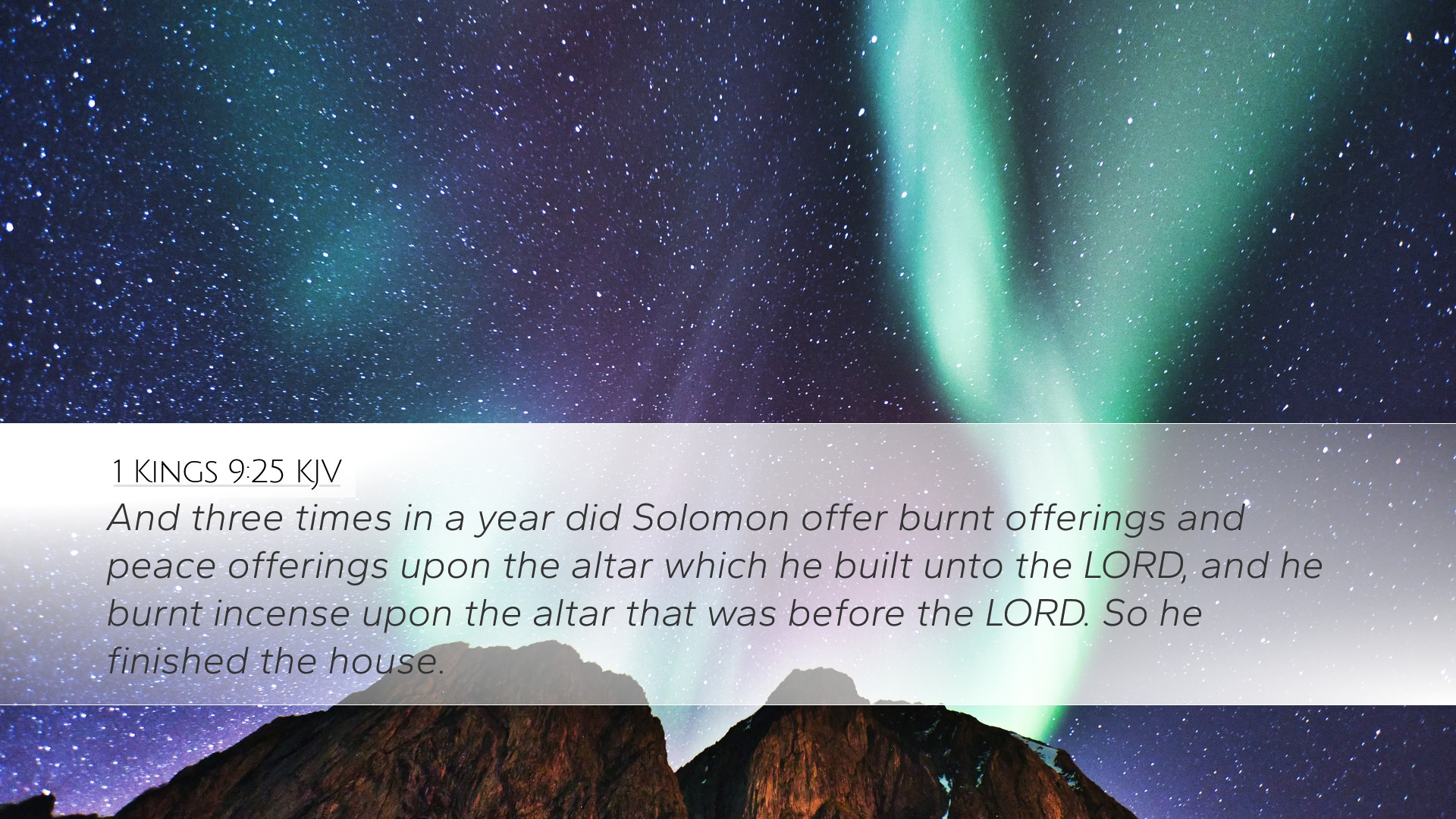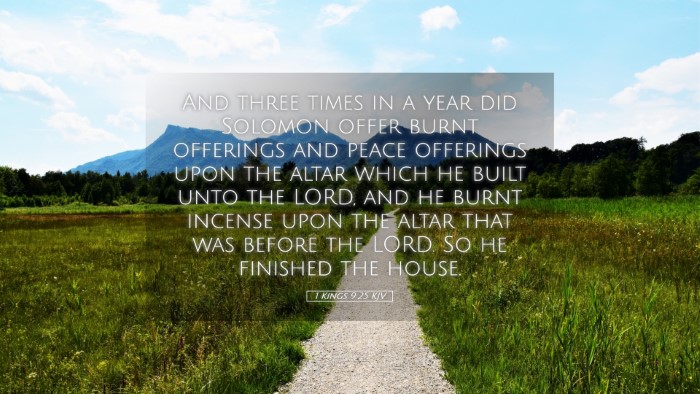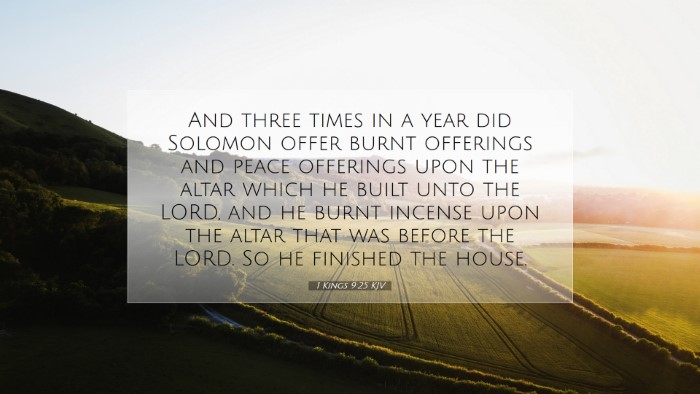Commentary on 1 Kings 9:25
Verse Analysis:
1 Kings 9:25 states,
"And three times in a year did Solomon offer burnt offerings and peace offerings upon the altar which he built unto the LORD, and he burnt incense upon the altar that was before the LORD. So he finished the house."
Contextual Background
In the narrative of 1 Kings, we observe the reign of King Solomon, whose leadership is marked by great wisdom, wealth, and extensive building projects, including the Temple in Jerusalem. This verse highlights Solomon's commitment to worship and devotion to God through regular offerings.
Thematic Insights
-
The Practice of Worship:
Commentators emphasize that Solomon's offerings and burnt sacrifices were essential aspects of his kingly duties and personal faith. Regular worship, as indicated by the three annual feasts, reflects both individual piety and national observance.
-
Significance of Offerings:
The burnt offerings symbolize total dedication to God; as noted by Matthew Henry, this represents a holistic approach to worship where the worshipper is wholly given to God, showcasing both submission and gratitude.
-
The Peace Offerings:
Adam Clarke provides deeper insight into peace offerings, highlighting them as acts of fellowship. These offerings represented communal relationships with God, demonstrating that worship is not merely a private affair but is communal and relational.
-
The Role of Incense:
The act of burning incense is often associated with prayer, as interpreted by Albert Barnes. This ritual symbolizes the prayers of the people ascending to God, thus indicating the intimate connection between worship and communication with the divine.
Solomon's Leadership and Worship
Solomon, as a leader, sets a precedent for the people of Israel through his worship practices. Commentators like Barnes articulate that a king’s alignment with God through worship profoundly impacts national morality and spirituality.
Solomon’s commitment, evidenced by his three annual offerings, reflects the Mosaic Law's stipulations in Exodus 23:14-17, emphasizing regular worship and communal gathering in Jerusalem. This structured approach to worship could serve as a model for public worship within contemporary church settings.
Theological Implications
The deliberate routine of offering sacrifices implies recognition of God's sovereignty and the necessity of atonement. As discussed by Henry, such sacrifices also anticipated the ultimate sacrifice of Christ, intertwining the themes of Old Testament worship with New Testament revelation.
Another significant aspect presented is the transformative nature of worship. True devotion can lead to a heart aligned with God’s purposes, as implied in Solomon’s dedication of the Temple. Through his worship practices, Solomon demonstrated that leadership and spirituality must coexist for the advancement of God's kingdom.
Conclusion
In conclusion, 1 Kings 9:25 serves as a vital reminder of the significance of consistent and structured worship in the life of both individuals and corporate entities. The verse encapsulates the essence of reverence towards God and underscores the rhythms of faith that guide believers.
For pastors, students, and theologians, this passage invites an exploration of worship practices. It challenges contemporary faith communities to reflect on their patterns of worship and the depth of commitment demonstrated in their relationships with God.


